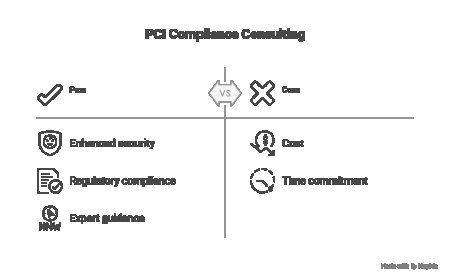Refund Policies When Hiring Online Class Helpers
Refund Policies When Hiring Online Class Helpers
Refund Policies When Hiring Online Class Helpers
Introduction
Online class help services have Hire Online Class Help grown into a global industry, offering students assignment assistance, exam-taking support, and full course management solutions. As students invest substantial amounts to hire these services, refund policies become a critical consideration in provider selection. Refund policies protect students against risks such as missed deadlines, plagiarism, or low-quality work. However, refund policies vary widely across companies, with differences in clarity, fairness, and enforceability. This article examines the structure of refund policies among online class help providers, their importance, common terms and conditions, associated risks, and strategies students should adopt to safeguard their investments.
The Importance of Refund Policies
- Financial Protection
Hiring online class helpers often involves high costs, especially for urgent deadlines or full-course management. Refund policies protect students from losing their money if services fail to deliver as promised.
- Accountability
Refund guarantees ensure that companies remain accountable for their claims regarding quality, originality, and timely delivery.
- Trust Building
Clear and fair refund policies build trust between students and service providers, encouraging repeat business and referrals.
Standard Refund Scenarios in Online Class Help Services
Top providers generally offer refunds under specific circumstances:
- Missed Deadlines
If a service fails to deliver an assignment or task by the agreed deadline, partial or full refunds are often promised, depending on delay duration and task criticality.
- Plagiarism Issues
If delivered work is plagiarised and fails institutional plagiarism checks, companies may refund the payment or offer a free replacement assignment.
- Failure to Follow Instructions
If a task is completed without Online Class Helper adhering to detailed instructions provided by the student, refunds are considered after internal quality checks.
- Tutor Non-Availability
In tutoring platforms where students pre-book sessions, refunds are provided if the tutor cancels or is unavailable at the scheduled time.
- Technical Failures
In cases where technical issues prevent service completion, such as failed exam logins or platform access problems, companies offer refunds or rescheduled assistance.
Types of Refund Policies
- Full Refund Policies
A full refund is promised when:
- No work has been initiated on the order.
- Complete task failure occurs, such as plagiarism detected without possibility of rewriting.
- Service refusal before deadline due to internal issues (lack of expert availability).
- Partial Refund Policies
Partial refunds are common when:
- The task was delivered late but still useful for learning or future submission.
- Instructions were partially followed, with only minor issues.
- Plagiarism levels are under institutional thresholds but higher than expected (for example, 15 percent similarity instead of guaranteed under 10 percent).
- No Refund Policies
Some companies explicitly declare no refunds under any circumstance, particularly for:
- Completed orders claimed to nurs fpx 4045 assessment 2 be model answers for study reference.
- Tasks where the student failed to provide complete instructions initially.
- Exams or quizzes, citing uncontrollable outcome uncertainties.
Common Terms and Conditions in Refund Policies
- Deadline for Refund Requests
Companies specify timeframes within which students must request refunds, typically:
- 24 to 72 hours after order delivery for assignment issues.
- Immediately for live tutoring session failures.
- Evidence Requirements
To process refunds, students may be required to:
- Provide Turnitin or SafeAssign plagiarism reports for originality disputes.
- Share professor feedback indicating failure due to quality.
- Submit screenshots of missed deadlines on course portals.
- Exclusions Clauses
Refund policies often exclude:
- Grades lower than expected if the task met provided instructions.
- Student changes in assignment requirements after order placement.
- Personal dissatisfaction without objective evidence of error or failure.
- Revision First Policies
Most companies require students to request free revisions before considering refunds. Only if revisions fail to resolve issues will refund eligibility apply.
Risks and Challenges with Refund Policies
- Hidden Terms
Many companies advertise money-back guarantees prominently but include hidden clauses making refund approval difficult. For example:
Refunds only applicable if plagiarism exceeds 30 percent and no revisions are requested within 12 hours.
- Ambiguous Language
Policies may use vague wording nurs fpx 4045 assessment 5 such as we will try to accommodate refunds at our discretion, leaving approval decisions entirely with the provider.
- Delayed Refund Processing
Some companies approve refunds but delay payments for weeks or months, affecting student cash flows, especially when dealing with high-cost orders.
- Non-Enforceability
Unregistered or offshore companies often ignore refund requests altogether, with students having no legal recourse due to jurisdiction challenges.
Real-World Student Experiences with Refund Policies
Positive Experience
I ordered an urgent finance assignment but they missed the deadline by 12 hours. Their policy promised a 50 percent refund for late delivery, and I received it within five days without hassle.
Negative Experience
The essay they delivered was 40 percent plagiarised. Their policy said plagiarism refunds apply only if detected within 12 hours of delivery, which was impossible due to my work shift. They refused my refund request.
Neutral Experience
I requested a refund for poor quality, but they offered free revisions instead. After two revisions, it was acceptable. I did not get a refund, but at least they improved the work.
Factors Affecting Refund Policy Strength
- Company Reputation
Established platforms with positive Trustpilot or Sitejabber reviews are more likely to honour refund policies to maintain credibility.
- Business Registration and Regulation
Companies operating under registered businesses in regulated markets (such as the US or UK) follow stricter consumer protection laws, enhancing refund reliability.
- Service Type
- Tutoring Platforms: More flexible with refunds for session cancellations or tutor unavailability.
- Assignment Writing Services: Stricter refund policies due to subjective quality assessments.
Best Practices for Students Evaluating Refund Policies
- Read Policies Thoroughly
Always read the full refund policy on the providers website before placing an order. Note deadlines for requests, exclusion clauses, and evidence requirements.
- Request Clarifications
Ask customer support to clarify any ambiguous terms and save chat transcripts for future reference.
- Check Independent Reviews
Look for third-party reviews specifically mentioning refund experiences to gauge practical policy enforcement.
- Choose PayPal or Credit Card Payments
These payment methods offer buyer protection, enabling dispute filing if refund requests are ignored.
- Avoid Services with No Refund Policies
Completely avoid companies that declare no refunds under any circumstance, as this indicates poor accountability and customer service ethics.
The Future of Refund Policies in Online Class Help
- Greater Transparency
With growing consumer rights awareness, companies will adopt clearer refund policies outlining conditions in simple language for student understanding.
- Instant Refund Processing
Integration with payment platforms will enable instant refunds in case of automatic refund eligibility determination, enhancing customer satisfaction.
- Policy Standardisation
Industry bodies or regulatory frameworks may establish standard refund guidelines for online academic services to reduce exploitation.
- Outcome-Based Policies
Policies may shift towards performance-based models where partial payments are held in escrow and released only upon verified task quality and delivery.
Ethical Considerations of Refund Policies
While refund policies protect students, they also raise ethical considerations:
- Students using completed assignments without payment by abusing refund policies undermine academic service sustainability.
- Companies denying legitimate refunds despite clear service failures exploit vulnerable student populations.
A balanced approach ensuring fairness for both students and service providers is essential for long-term industry credibility.
Conclusion
Refund policies are a critical nurs fpx 4055 assessment 3 aspect of online class help services, safeguarding students against risks of missed deadlines, plagiarism, and poor-quality work. However, refund terms vary widely across providers, with hidden clauses, ambiguous wording, and unenforceable promises often undermining student protection. To choose the right service, students must evaluate refund policies thoroughly, clarify terms with customer support, and check independent reviews. Using secure payment methods and ethical service providers enhances refund reliability and ensures responsible outsourcing practices aligned with academic and professional integrity. As the industry evolves, transparent, fair, and enforceable refund policies will remain key to sustaining student trust and operational credibility within the competitive online academic assistance market.
More Articles:
Why Full-Time Workers Rely on Online Class Services for Degrees
Effects of Online Class Aid on Study and Personal Life Balance
Ethical Factors to Weigh Before Getting Online Coursework Help









































